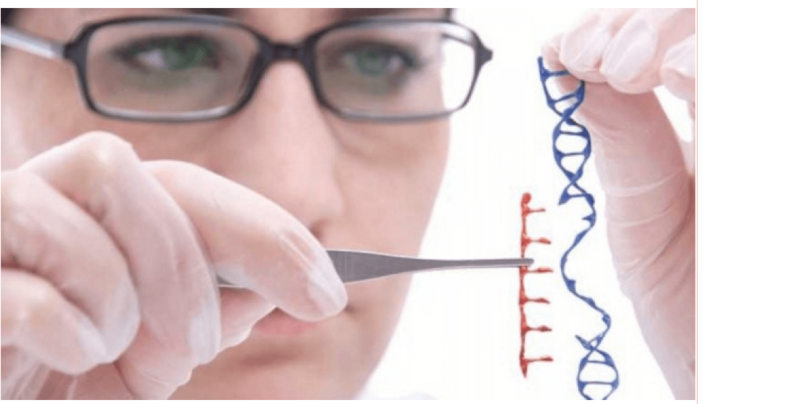Cheap. Precise. Game-changing. The gene-editing technique called CRISPR was named Breakthrough of 2015 by Science magazine. It makes simple what once was extremely difficult and time-consuming: repairing specific genes by editing out disease-causing alleles and sticking in healthy ones. And while more than $1 billion in venture capital has flooded into the startup market centered around the technology according to the Economist, not one company had gone public—until last week.
On January 4 Editas Medicine filed paperwork with the Securities and Exchange Committee (SEC) to formalzie their intent to release an initial public offering later this year. The company said it hopes to raise $100 million from its stock. The details were vague, but the company said it would be used to fund preclinical and clinical studies, working capital and expansion that could include acquisition of other companies.
Investors might be enticed by the big names in biotech that come with the company. Harvard geneticist George Church, MIT’s Feng Zhang and Berkeley’s Jennifer Doudna were all co-founders although Doudna is no longer working with Editas. She is involved with another CRISPR-related venture, Caribou Biosciences, which she co-founded.
But some analysts caution that beyond the big names, technological hype and being the first company to hit the public market, Editas might not be a sure bet. As the Economist pointed out the company is not close to a clinical trial yet is spending a lot of cash:
This biotech company has burned through $75m in the past few years and has not yet started clinical work on a drug candidate. It says it will be many years, “if ever”, before it has something ready to commercialise. If this were not enough, not only is there a thorny patent thicket to manage but the firm must fight and win a case seeking to overturn its own intellectual-property claims on the ground that it was not the first to invent them.
The intellectual property issue is a big one. Earlier this week the U.S. Patent and Trademark Office announced it would take a second look at the patent for the CRISPR system that was originally awarded to Zhang and colleagues at MIT’s Broad Institute. But the owner of CRISPR has been debated almost since its discovery. Duodena and her colleague Emmanuelle Charpentier were the first to publish on CRISPR editing. Their institutions also assert their right to the intellectual property. “At stake are rights to an invention that may be the most important new genetic engineering technique since the beginning of the biotechnology age in the 1970s,” wrote Antonio Regalado who has covered the technology in depth.
On the other hand, no matter who owns the patent, CRISPR technique has been widely applied by dozens, maybe even hundreds, of researchers at many different institutions around the world. Zhang, Doudna, Charpentier and the universities they work for have all licensed their part of their respective patents to the companies they’ve founded and beyond. Because the technique is so easily manipulate applicable it seemed clear from inception that it would become widely used in biotechnology.
Other companies with documented interest in CRISPR include ATCC, Transposagen, GE Healthcare, Sigma-Aldrich and Bayer. Editas is reported to be focusing on an editing technique to cure Leber congenital amaurosis a form of blindness that affects about 1,000 people in the US every year. It’s caused by mutations that can be found in a handful of genes which affect the functioning of the retina. But clinical trials for gene editing applications of Leber blindness weren’t expected to 2017 at the earliest.
Some of the skepticism about the Editas IPO is related to a general downward trend in biotech IPOs writes Robert Weisman at the Boston Globe:
But the number of US biotech IPOs dropped to 44 last year from 63 in 2014, according to Greenwich, Conn., research firm Renaissance Capital, which manages IPO-focused exchange traded funds. The number of biotech IPOs in Massachusetts fell to 11 from 15. The falloff was especially marked in the second half of the year, when fewer companies went public, a few canceled planned IPOs, and those that went forward sold below their target range.
And since the Editas announcement biotech stocks have further dropped, although the two are not seen to be related.
Editas’ business focuses on gene editing in humans. But there is a wide range of non-human related CRISPR applications that might be more achievable in the short term. One example would be using CRISPR to do basic research, where CRISPR can be customized to carry out experiments that focus on the silencing or the over expression of various genes. Another application is the development of pig or other animal organs that could be implanted into humans who need transplants. Editing some of the porcine genes could eliminate the immunological rejection of the transplanted organs.
Those applications might be lower hanging fruit for companies and investors looking to cash in on CRISPR quick. But they are not the moonshot. And as much as Editas is selling innovation and technology, it’s brazenness is likely to attract investors.
Meredith Knight is a contributor to the human genetics section for Genetic Literacy Project and a freelance science and health writer in Austin, Texas. Follow her @meremereknight.































